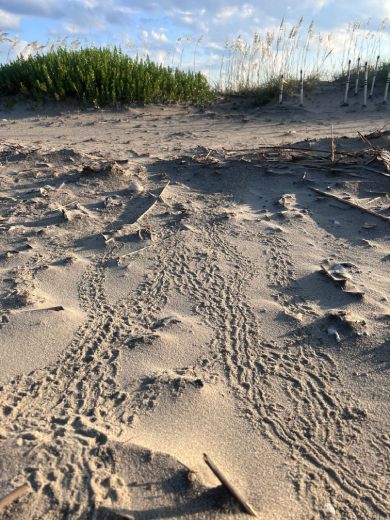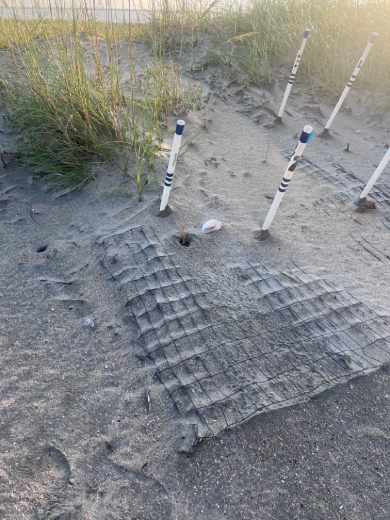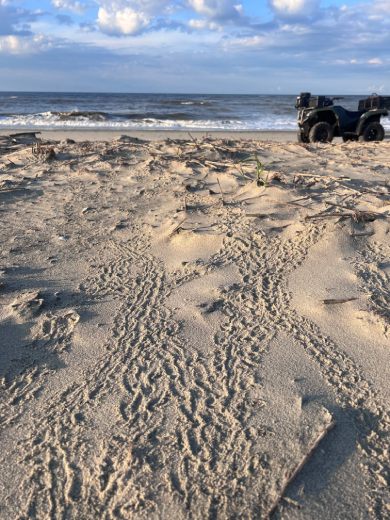SCDNR News
Sea turtle hatching season begins on South Carolina beaches
CHARLESTON COUNTY, S.C.
July 8, 2022

Sea turtle hatching season is officially underway in South Carolina, and state wildlife officials are asking beach residents and visitors to give these animals the best chance of success by following best practices for the season: (1) keep the beach dark and free of lights to avoid disorienting hatchlings, and (2) leave only footprints along the coast by picking up litter, removing personal belongings and filling in any holes at the end of the day.
The state’s first hatchlings of 2022 emerged July 3 from the first nest laid this year on on Lighthouse Island. Other nests quickly followed suit across the coast.
Beginning in May of each year, up to four of the planet's seven sea turtle species come ashore to lay eggs on South Carolina beaches. After approximately two months of incubation, young turtles emerge from their ping pong ball-sized eggs and quickly make their way toward the ocean.
"The emergence of hatchlings from nests reported so far is well under the average 60-day incubation period," said Michelle Pate, wildlife biologist with the South Carolina Department of Natural Resources (SCDNR). "This shortened incubation period typically happens with nests laid early in the season. Hot temperatures can also affect the duration of the incubation period, leading to the early emergence of hatchlings."

Female sea turtles will continue nesting on South Carolina beaches for about two more months. At this season’s halfway mark, over 5,600 nests have been counted, surpassing the total sea turtle nest count of last season. Sea turtles do not nest every season, resulting in cyclical fluctuations from year to year. Laying eggs requires a great deal of energy and can thus be affected by the quality and availability of food during the winter, among other factors.
Farmers and agricultural representatives reported impacts across the state.
"While the numbers we're seeing are still slightly below the trend we saw in the record 2019 year, when we counted a minimum of 8,796 nests by the end of the nesting season, these are still huge numbers, which is overall very encouraging for this protected species," said Pate.

Sea Turtle Nesting Season Reminders:
- Keep artificial lights off the beach at night during sea turtle season – this includes beachfront property lights, flashlights and cell phones, which can scare off females and disorient hatchlings.
- Always respect sea turtles by observing them from a distance on the beach. Do not pick up, touch, or otherwise interfere with hatchlings heading to the ocean. The journey hatchlings take from their nest to the water is a highly important one. Individuals that violate federal law by interfering with sea turtles, nests, and eggs can be subject to civil penalties of up to $25,000 and up to a year’s imprisonment.
- Leave only footprints: Pick up litter, remove personal belongings and fill in holes at the end of the day.
- Report all sick/injured/hooked/dead sea turtles and any nest or animal disturbances to the SCDNR at 1-800-922-5431 so that staff and volunteers can respond as soon as possible.
- Support our efforts for continued protection of sea turtles in South Carolina. Donate online with the Marine Resources Fund or via check to the SCDNR Sea Turtle Program, PO Box 12559, Charleston, SC 29412.
For additional information, contact:
Erin Weeks at (843) 729-3531



